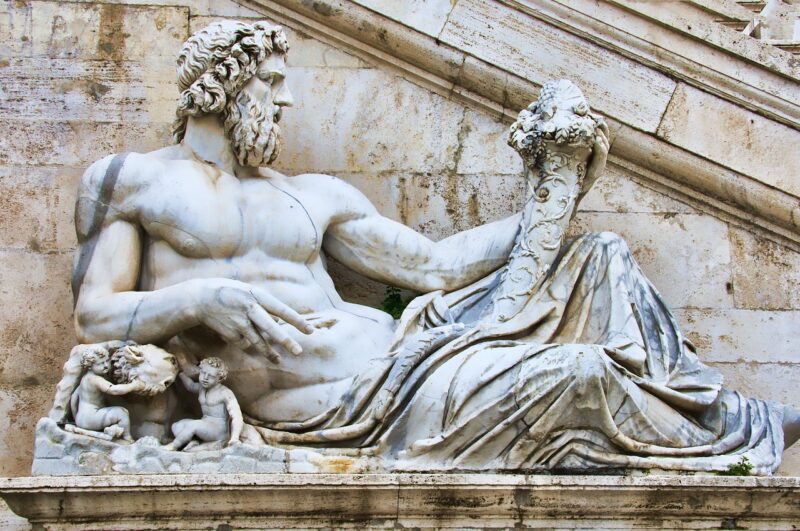The Political Legacy of the Roman Empire: Governance, Law, and Civilization
November 16, 2024

The Roman Empire, often hailed as one of the most influential empires in history, has left an indelible mark on the political landscape of the world. Stretching across continents and existing for over a millennium, the governance systems, legal frameworks, and cultural concepts introduced by the Romans continue to resonate today. This article delves into the profound political legacy of the Roman Empire, examining how its structures influenced modern governance, legal systems, and the overarching concept of civilization itself.
1. The Foundations of Roman Governance
The governance framework of the Roman Empire was characterized by a complex system that evolved from a republic into an imperial autocracy. The initial governance structure was heavily influenced by the early Roman Republic (509-27 BC), which introduced key concepts such as:
- A Mixed Constitution: The Roman political system combined elements of democracy through popular assemblies, aristocracy via the Senate, and monarchy in the form of consuls. This blend allowed for a balanced approach to governance and decision-making.
- Checks and Balances: The distribution of power among different branches aimed to prevent any one entity from gaining too much power. The Senate played a crucial role in advising, while elected officials were accountable to the citizenry.
- Citizenship and Participation: The fabric of Roman society was woven with the idea of citizenship, granting political and legal rights to a privileged few that could participate in governance, laying the groundwork for modern participatory governance.
The evolution of this governance system culminated in the establishment of the Empire under Augustus Caesar, shifting power dynamics significantly and shaping systems of governance that would influence future empires.
2. The Rule of Law and Its Implications
One of the most enduring gifts of the Roman Empire to the world is the concept of the rule of law. Roman law not only provided a framework for civil and criminal justice but also established principles that are key to contemporary legal systems. Important aspects include:
- Legal Codification: Roman law was systematically documented in various texts, with the *Corpus Juris Civilis* (Body of Civil Law) under Emperor Justinian being one of the most significant examples. This codification facilitated the consistency and accessibility of laws.
- Principles of Justice and Equity: Roman law emphasized fairness, with key tenets such as the presumption of innocence and the right to a fair trial, concepts that are now fundamental in legal jurisdictions worldwide.
- International Law Origins: The Romans were pioneers in the idea of international law, establishing legal frameworks that governed relationships between different states, leading to the principles we recognize today in agreements and treaties.
The influence of Roman law can be felt in countless legal systems around the globe, and understanding its evolution provides critical context for modern legal practices.
3. The Impact of Roman Political Thought
Roman political philosophers like Cicero, Seneca, and Tacitus offered insights into governance, ethics, and public duty. Their works fostered a rich tradition of political thought that has profoundly shaped contemporary political philosophy. Key contributions include:
- The Concept of Natural Law: Cicero argued that true law is in accordance with nature and can be discovered through reason. This idea of natural law has informed human rights discussions and legal philosophy across cultures and centuries.
- Public Service as a Duty: Roman thinkers emphasized that engaging in public service is a civic duty, a notion that continues to underpin democratic engagement and the responsibilities of citizens in government today.
- Critiques of Power and Morality: The philosophical discourse from Rome introduced critical analysis of power and ethical governance, stressing the importance of virtue and moral integrity, concepts that remain central in discussions of leadership today.
The political thought from the Roman Empire has influenced philosophers, politicians, and theorists throughout history, creating a legacy that encourages ongoing dialogue about governance and ethics.
4. The Roman Empire and the Concept of Civilization
The Roman Empire is often associated with the spread of civilization. The Romans excelled at infrastructure development, culture, and governance, which collectively influenced the concept of what it means to be civilized. Key areas of impact include:
- Infrastructure and Urban Planning: Romans built extensive networks of roads, aqueducts, and cities, facilitating trade, communication, and cultural exchange. This infrastructure created the foundational layout for modern urban environments.
- Cultural Integration and Exchange: The Pax Romana allowed for the exchange of ideas, cultures, and technologies between diverse populations within the empire. This cultural blending fostered a shared identity and advanced arts, literature, and sciences across borders.
- Education and Knowledge Dissemination: The Romans valued education, and they established educational institutions that promoted literacy and philosophical thought, contributing to the transmission of knowledge throughout Europe and beyond during the Middle Ages and Renaissance.
Through these contributions, the Roman Empire set standards for civilization that many societies today still aspire to emulate.
5. Conclusion: An Enduring Legacy
As we reflect on the political legacy of the Roman Empire, it becomes clear that its influence permeates modern governance, legal frameworks, and cultural understanding. The empire’s complex governance systems introduced checks and balances that are foundational in democratic principles today, while the codification of law established the basis for justice systems prevalent in many countries.
Moreover, Roman political thought continues to provoke discourse surrounding ethics and morality in governance, while its contributions to infrastructure and culture redefine our understanding of civilization. The lessons derived from the Roman experience lay a critical foundation for contemporary discussions about law, governance, and social responsibility.
The Roman Empire may have fallen centuries ago, but its legacy endures, shaping our world in ways that continue to evolve. Understanding this legacy allows us to appreciate the complexities of our political systems and inspires us to build a civilization that reflects the ideals of justice, governance, and community.







